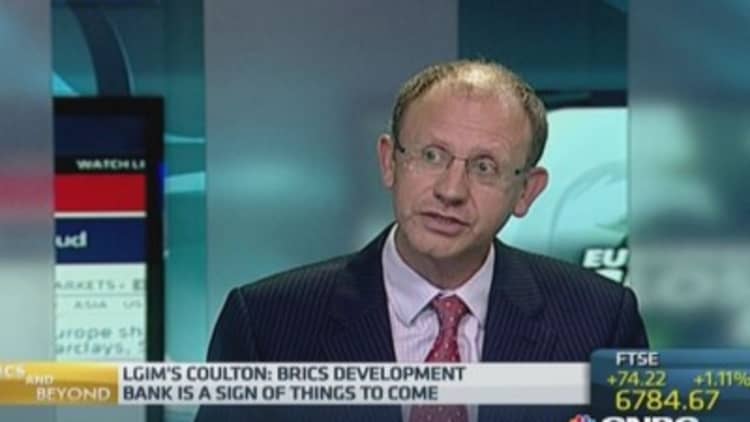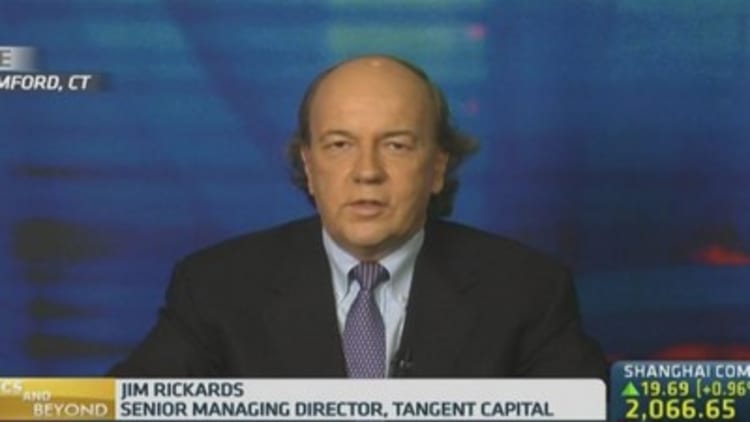
The foundation this week of the BRICS Development Bank has highlighted the problems with the current system of global assistance and governance – particularly from the U.S., says Jim O'Neill, the former chairman of Goldman Sachs Asset Management.
Renowned investor Jim O'Neill found international fame during his 18-year career at Goldman Sachs by coining the term BRIC to describe the emerging economies of Brazil, Russia, India, and China.
Those developing countries, along with South Africa, have agreed to create a development bank this week that will have a currency reserve that will be capitalized at $100 billion. The new bank will be modeled after Washington DC-based organizations the World Bank and International Monetary Fund (IMF), which emerging economies have long complained were too Western in their approaches to economic assistance.
"It's quite a development," O'Neill told CNBC.
"The most important thing is that it's now a permanent sign that global governance is a mess. Global governance has not kept up with the pace of global economic change," he said.
Read MoreHow BRICS bank hurts India's Modi
O'Neill said that it was understandable that the countries would want their own lending facility – especially since their voting power at the IMF still being stifled by U.S. lawmakers.
"These guys are thinking: 'Well you expect us to keep in putting more and more money in the IMF and you won't even give us the weight we're supposed to have all agreed that we should have? Forget it - we'll have our own.'"
Both the IMF and World Bank have structures that are weighted very heavily in favor of the U.S. and Europe despite the emergence of these developing superpowers. Proposed 2010 reforms have still yet to be fully ratified by Congress.

"It's already out of date anyway but Congress won't even ratify that," O'Neill added.
Read MoreBRICS: CNBC Explains
Evolution away from dollar?
Meanwhile, the IMF congratulated the BRICS nations on Wednesday, saying that it would be delighted to work with them to help preserve financial stability in the world.
"The IMF has a very strong relationship with all the BRICS nations, which are key members of this institution. We look forward to further strengthening our collaboration," IMF Managing Director Christine Lagarde said in a statement. Brazil's President Dilma Rousseff played down concerns that the new bank might be a threat to the IMF, telling local media that it did not mean Brasilia was distancing itself from the organization.

The main challenge for BRICS success: China
James Rickards, senior managing director at Tangent Capital, told CNBC that the new bank marked an "evolution" away from U.S. dollar-denominated assets and gave China, in particular, more choice on which infrastructure projects should be funded. The Chinese city of Shanghai has been selected as the headquarters for the bank.
O'Neill added that the BRICS bank could be regarded as somewhat of a vanity project for the countries collectively, and for China it meant its leaders could "tiptoe" into experimenting with more global responsibility. He stopped short of admitting that the developing nations could be looking to move away from the reigns of the World Bank and the IMF, however.
"We'll have to see what they really want to do with it," he said. "(There's) a ton of things these guys can do."


